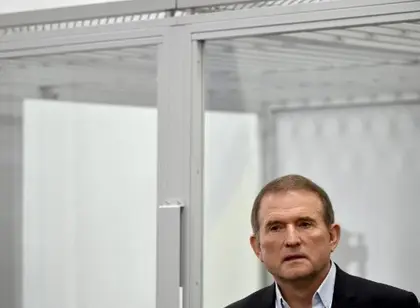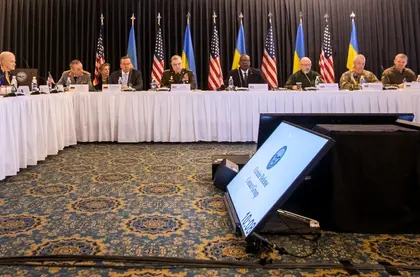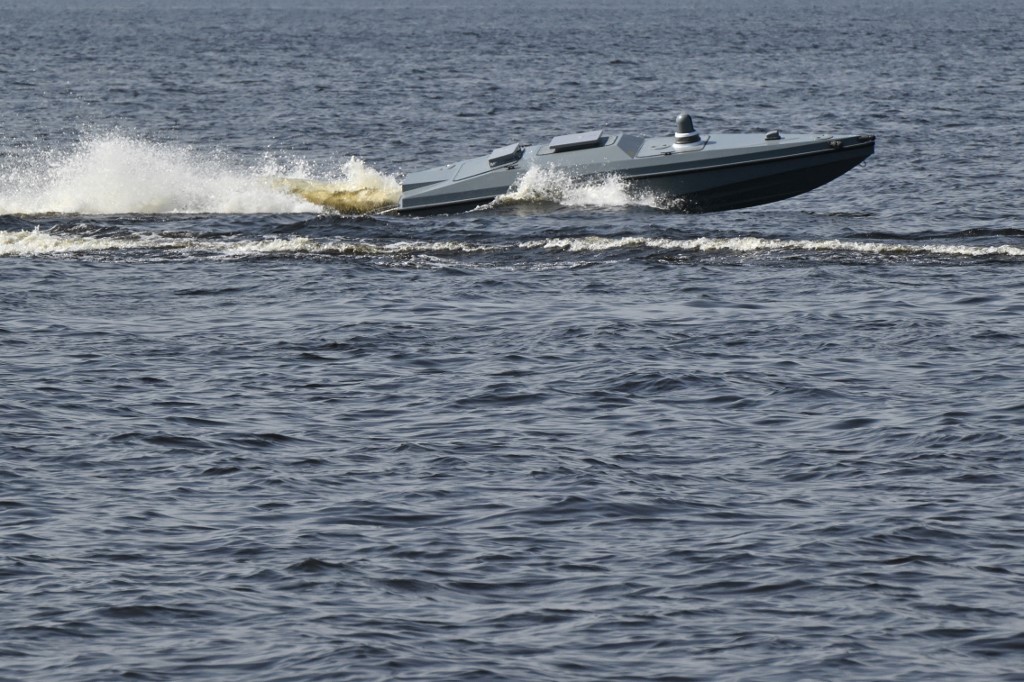The release of 215 defenders of Mariupol, including ten foreign citizens who were in Russian captivity, in exchange for Viktor Medvedchuk and 50 Russians was sensational news.
The contrast in the reaction to this news is striking: in Ukraine people are rejoicing, while in Russia there is criticism, especially from the war supporters. This contrast is like a diagnosis. In Ukraine, the value of life and freedom of our heroes – our defenders – is important both for President Zelensky and the absolute majority of Ukrainians, in particular for the opponents of the incumbent government.
JOIN US ON TELEGRAM
Follow our coverage of the war on the @Kyivpost_official.
At the same time, for Russian chauvinists, imperial ideals and propagandist stereotypes come first. They do not care about their soldiers in captivity. On the contrary, they are intimidating their soldiers into voluntary surrender because of criminal punishment.
The defenders of Mariupol were exchanged for Medvedchuk at the time when Russian authorities announced their decisions on partial mobilization and the organization of pseudo-referendums in the occupied territories of Ukraine. Since there have always been supporters of the so-called treason theory in our country, the question arises whether there will be any suspicion of secret plans to negotiate with Putin.
There are also people dissatisfied with exchanging our fighters for Medvedchuk. In their opinion, it would be better to demonstratively punish this leader of the Opposition Platform – For Life party, and the godfather of Putin’s daughter, for treason and send him to prison for a long time.

Next Meeting in Ramstein Format to Be Held Jan. 9 – Media
But the first reaction to the release of the Mariupol defenders indicates almost unanimous support for this exchange. The joy of liberation of our heroes so far overcomes the so-called treasonable conspiracy and the political instincts of the opposition. Critics will show up, but probably later.
The successful release of the Mariupol defenders will undoubtedly strengthen the authority of President Volodymyr Zelensky, the leadership of the military intelligence of Ukraine, and all those who participated in the organization of this exchange.
When these complicated negotiations were just beginning, few people believed in their success. The tragedy in Olenivka, when several dozen Azov prisoners died as a result of Russian provocation, only strengthened the pessimistic mood. If the release of the Mariupol defenders was expected, then only after the war, and not immediately. Yet, it has happened. The seemingly impossible can become a reality if you work hard and purposefully on it.
The biggest intrigue of this event, which will actually provoke conspiracy theories, is why Putin agreed to such an exchange.
Here are my assumptions in response to that question.
Given the context of all the events, the agreement on such an exchange was achieved in June, when the defenders of Mariupol were captured. It was then that there was already information about the possibility of an extraction procedure when prisoners are released and sent to the territory of a neutral country until the end of the war, as well as about the possibility of exchanging the Azov defenders for Medvedchuk.
At that time, the Russians allegedly rejected this offer made by the Ukrainian authorities. However, now it is clear that negotiations about it continued and eventually yielded results. Turkish President Recep Erdogan played a huge, if not decisive, role in these negotiations and it was fundamentally important for Putin to fulfill personal agreements with Erdogan. In this case, it is similar to a story with the grain agreement.
Yet, by the very fact of fulfilling the agreements on the exchange of the Mariupol defenders, Putin, in my opinion, is also sending signals to the West. He wants to demonstrate that he is ready to negotiate on specific issues and that he can be talked to. We have many reasons not to trust Putin but such political gestures should be taken into account. In particular, they indicate that he should be perceived not only as a crazy fanatic, but as an authoritarian leader who wants to bargain and negotiate.
Finally, the factor of Medvedchuk must also be considered. If the Kremlin agreed to such an exchange, then Medvedchuk still retains a certain value for them. Perhaps these are Putin’s feelings towards him. Maybe there are still illusions and calculations to somehow use Medvedchuk in the further game in Ukraine. We don’t know for sure, but the role of godfather clearly played a role in this exchange.
Will Medvedchuk influence Ukrainian politics from Russia? Hardly.
Medvedchuk’s influence on Ukrainian politics was really exaggerated, as the first months of the war confirmed. Now this influence is almost zero. Even former partners from the Opposition Platform – For Life party, a pro-Russian and Eurosceptic political party in Ukraine, turned away from him. Now he is too toxic even for them.
Perhaps Petro Poroshenko will heave a sigh of relief. There was a risk that Medvedchuk would become a witness against him as the fifth president of Ukraine in a joint criminal case. Medvedchuk must have given some testimony against Poroshenko. However, the fact that Medvedchuk was exchanged indirectly indicates that using Medvedchuk against Poroshenko is not a priority for the incumbent Ukrainian government.
The Kremlin clearly feared that the release of the Azov defenders would cause a negative response among the war supporters in Russia. That’s why they agreed to this exchange only after the announcement of decisions on partial mobilization and conducting pseudo-referendums in the occupied territories, at least partially reducing image risks for the Kremlin.
In general, this story vividly demonstrates the contradiction and ambivalence of actions of the Russian authorities. With one hand, they are intensifying the war, scaring with its escalation, and with the other they are sending signals of readiness to negotiate. This is the specific political style of Putin and the incumbent Russian authorities.
How will Ukraine respond to all this?
Specific agreements on the exchange of prisoners, on the resolution of certain security and humanitarian issues are and will be possible, but there will be no compromises on fundamental issues, in particular, on the status of the currently occupied territories.
You can also highlight the text and press Ctrl + Enter






